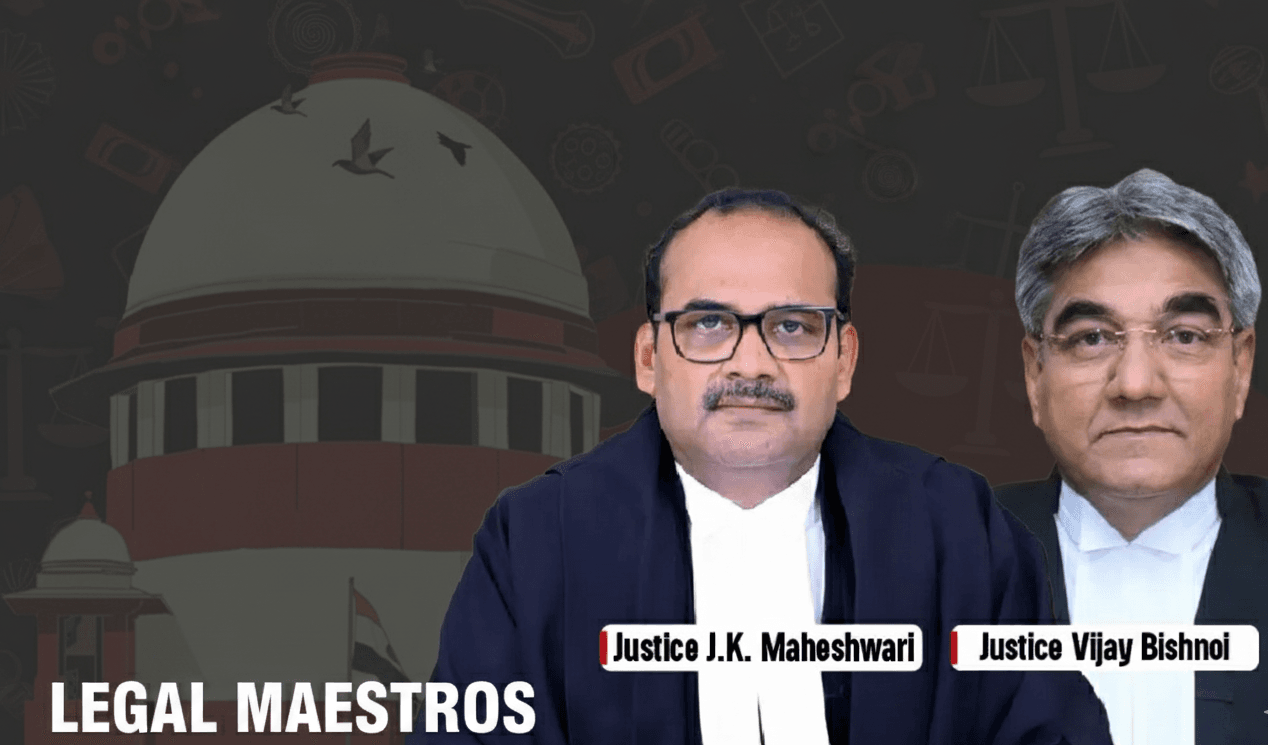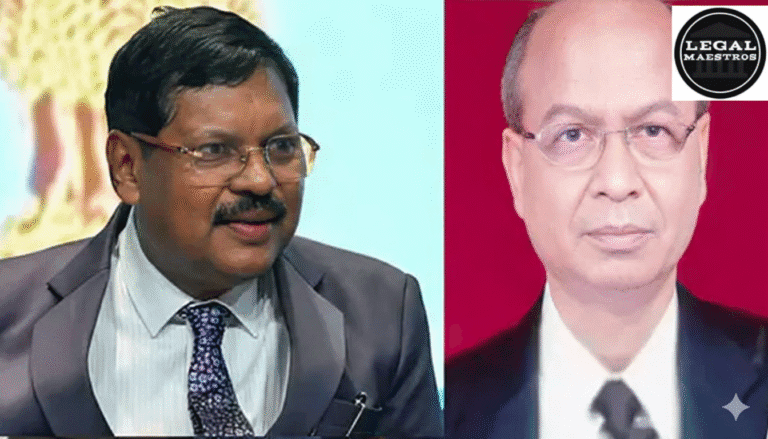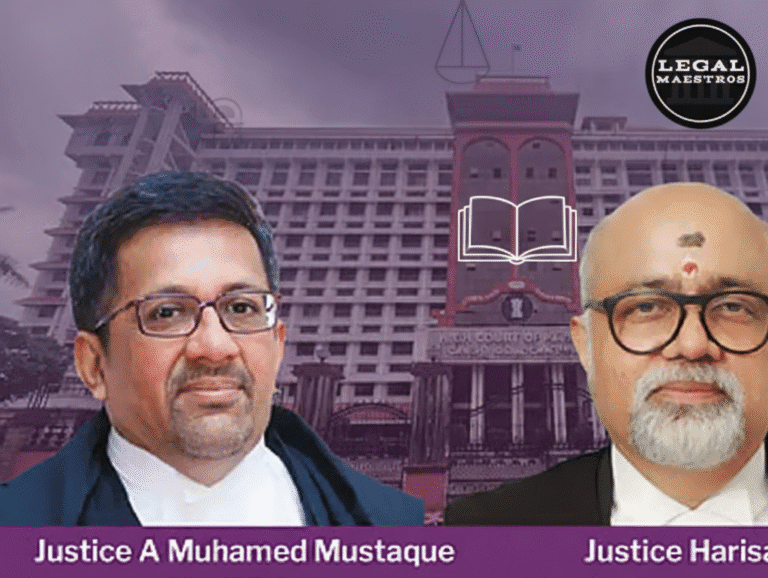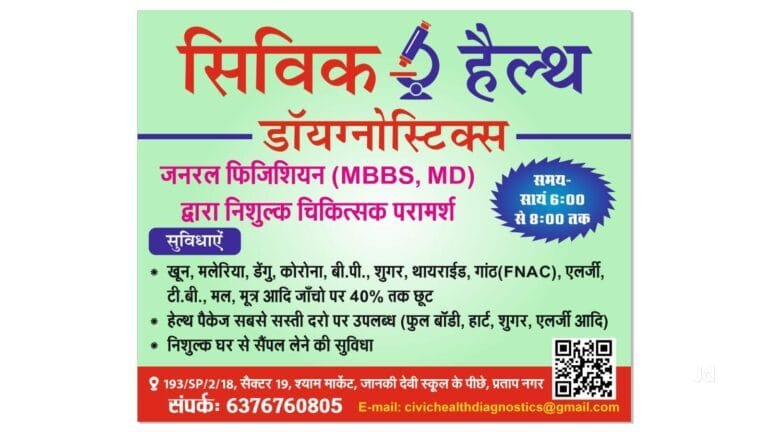
Justices J.K. Maheshwari and Vijay Bishnoi
The Supreme Court of India has made an important decision on judicial procedure and the status of courts with reference to administration tribunals by reiterating the paramount position of administration tribunals as the most important court in matters of service.
A bench of Justices J.K. Maheshwari and Vijay Bishnoi, on October 16, 2025, dismissed a group of appeals in respect of the recruitment of 15,000 Graduate Primary Teachers in Karnataka, stating that the Single Judge of the Karnataka High Court had erred in considering the writ petitions, as a good alternative remedy existed before the Karnataka State Administrative Tribunal (KSAT) (Karnataka High Court). The ruling reminds us of the fact that statutory remedies should be pursued before a High Court may consider granting a writ of action in a High Court under the writ jurisdiction unless in exceptional and uncommon cases.
The Heart of the Dispute
The case was based on a recruitment advertisement that the Government of Karnataka published on March 21, 2022, regarding 15,000 teaching posts. Following the examinations, a tentative select list was announced on November 18, 2022. One of the biggest scandals came when a few married women applicants who applied to Other Backward Classes (OBC) category were not accepted within it. The selecting authority had not received their caste and income certificates, which were issued in the name of their father, demanding that they be issued under the name of their husband. These candidates were therefore transferred to the overall merit list which negatively impacted them in terms of being selected.
For any queries or to publish an article or post or advertisement on our platform, do call at +91 6377460764 or email us at contact@legalmaestros.com.
Some of these candidates were aggrieved by this and they moved the Karnataka High Court by filing a writ petition, challenging the provisional list and demanding to be included in the OBC category on the basis of a certificate of their parents.
Diversionary Tracks of the High Court.
This case became a complicated one even in the High Court. A Single Judge delivered his ruling on considering the writ petition, stating three major matters: the sustainability of the petition, whether caste and income of the husband or parents was important, and who had the right to interpret these certificates.
The Single Judge ruled in favor of the candidates in a January 30, 2023 judgment. It was based on the ruling by the Supreme Court in T.K. Rangarajan v. that the judge made his ruling on the matter of maintainability. Government of T.N., believing that in extraordinary cases where there are many people affected, the High Court may skip the alternative remedy of the tribunal. On merits, the judge was of the view that caste of woman is a matter of birth and it cannot be transformed by virtue of marriage and therefore, the certificate founded on the status of her parents was valid.
For any queries or to publish an article or post or advertisement on our platform, do call at +91 6377460764 or email us at contact@legalmaestros.com.
The government has made a new provisional list pursuant to this order on February 27, 2023, and a final list on March 8, 2023. This new list incorporated the married women that had not been included in the list before, however, it replaced 451 other candidates (the current appellants) that had been on the original provisional list. These defeated candidates subsequently appealed writs in a Division Bench of the High Court.
On October 12, 2023, the Division Bench reversed the order of the Single Judge. It also believed that the writ petition could not be maintained since the case fell squarely within the reach of the KSAT which was the court of the first instance according to the law that was stated in L. Chandra Kumar v. Union of India. Division Bench concluded that the Single Judge had erred in relying on the case of T.K. Rangarajan since the present issue over certificates did not amount to an extraordinary situation that was unprecedented. This was therefore referred back to the KSAT to make a new decision. This order is the one that was contested between the two groups of candidates in the Supreme Court.
The Position of the Supreme Court: In support of the Rule of Alternate Remedy.
The Supreme Court finally disposed the procedural issue after establishing that there was no illegality in the judgment of the Division Bench. Justice Vijay Bishnoi, who conducted the case on behalf of the bench, highlighted that the law on alternate remedy is established. The Court placed significant weight on the authoritative pronouncement of the Court of Appeal at L. Chandra Kumar on the fact that service matters can only be dealt with at administrative tribunals and not in another court. Direct approach to the High Courts is not possible to litigants hence neglecting the jurisdiction of the concerned Tribunal.
For any queries or to publish an article or post or advertisement on our platform, do call at +91 6377460764 or email us at contact@legalmaestros.com.
The Court upheld the opinion of the Division Bench that the case at hand did not under the specific exemption that had been fashioned out in the T.K. Rangarajan case whereby two lakh state workers were dismissed. Although the case on whether or not 481 candidates could be eligible was pertinent, it is not a unique situation that would require the High Court to take a direct action.
It is a discretionary power as the judgment makes it clear that even though the power of a High Court under Article 226 is a fundamental aspect of the Constitution, it is a discretionary power. This freedom is tempered by a restraint which is imposed upon itself: a writ petition ought not to be resorted to in presence of an efficient statutory remedy. The exceptions to this rule- e.g. breach of fundamental rights, principles of natural justice, or orders made entirely without jurisdiction exception- were not available in the circumstances of this case.
According to what the Supreme Court observed, the KSAT has all the powers under the Administrative Tribunals Act, 1985, to take care of such issues in a holistic manner, which involves providing interim relief and expeditious disposal. Thus, the right track of procedural actions, which the aggrieved candidates should have taken, was to address KSAT first.
For any queries or to publish an article or post or advertisement on our platform, do call at +91 6377460764 or email us at contact@legalmaestros.com.
This Court of Appeals rejected the appeals and ordered the 500 posts which had been held in abeyance to be filled on the last ruling of the KSAT. The Court also asked the KSAT to make a decision on any application that is made in this respect as soon as possible, and ideally within six months. Notably, the Court did indicate that it had merely decided on the matter of maintainability and had not pronounced in the merits of the main conflict, that is, whether the OBC status of a married woman should be based on the income and caste certificate of her husband or her parents. That issue is subject to adjudication by the KSAT.





